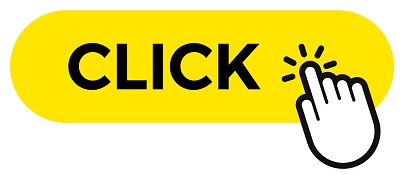|
Hochul Says New York Working to Address Mental Health Crisis
New York state's $229 billion budget is setting aside $1 billion in additional funding to address a broad array of mental health care needs in the wake of the COVID-19 pandemic. The money, touted by Gov. Kathy Hochul in Buffalo on Monday, is being highlighted as New York officias and advocates are making a renewed focus on the issue after the death of a Black man on a New York City after he was held in a chokehold. Hochul sought to frame the funding in the budget as addressing a range of issues, from social media to depression and homelessness. Hochul called the issue a problem that had been ignored for too long. Read more here.
Related: Governor Hochul Highlights $1 Billion Plan to Overhaul New York State's Continuum of Mental Health Care
|  | |
Governor Hochul Announces More Than $7 Million to Support Medication for Addiction Treatment
Governor Kathy Hochul on Monday announced more than $7 million for 15 providers across New York State to support medication for addiction treatment by establishing comprehensive, low-threshold buprenorphine services. These programs are designed to meet the ongoing need for medication and other addiction services by providing same-day, immediate enrollment in buprenorphine treatment and care management. This funding is being distributed through New York State's Opioid Settlement Fund. Read more here.
| |
Better Collaboration Necessary to Optimize New Funding Streams in Addiction Response
New funding sources present opportunities for improving the nation’s response to the addiction crisis, but strategies are needed to improve collaboration between agencies and various levels of government. At the recent Rx and Illicit Drug Summit in Atlanta, Georgia, Regina LaBelle, Director of the Addiction and Public Policy Initiative at the O’Neill Institute at Georgetown University Law Center, Andrew Whitacre, an officer with Pew Charitable Trusts’ substance use prevention and treatment initiative, and Michele Gilbert, senior policy analyst for the Bipartisan Policy Center, presented a session on best practices for aligning spending to improve treatment outcomes and developing strategies to advance reform within the field. Read more here.
| |
Tackling the Opioid Crisis by Understanding How Its Pieces Fit Together
A new report from RAND Corporation argues that progress against opioid drug abuse and addiction is best understood — and addressed — in the context of everything that comes with it through an ecosystem view.
How could a flower cause so much trouble? Drugs made from the opium poppy have been used as medicine, and abused, for 8,000 years. The properties that make them effective pain relievers can also produce an addictive state of euphoria. America’s first opioid crisis came in the aftermath of the Civil War. Wounded soldiers became addicted to the morphine injections and opium pills they received to lessen the pain of serious wounds, and this abuse spread. By one estimate, hundreds of thousands of Americans were addicted to these drugs by 1890. Read more here.
|  | |
Task Force Named for Daniel Prude to Address Mental Health
A task force named in honor of the Rochester man who died while in the custody of the Rochester Police Department will be required to address mental health and addiction issues as well as police responses to those concerns. The state budget included the creation of the panel, known as the Daniel's Law Task Force. The 10-member panel will address issues related to "trauma-informed, community-led responses and diversions for mental health, alcohol use or substance use crises," as well as how people are affected by police responses to mental health. Lawmakers and Gov. Kathy Hochul included the provision in the $229 billion budget after a push this session for a broader measure that would have created state and regional mental health units that would handle mental health crises instead of police officers. Read more here.
|  | |
To Ease Start of Addiction Treatment, Doctors Find Surprise Aid: Ketamine
Ever since fentanyl came to dominate the U.S. illicit drug supply, doctors and patients have found buprenorphine, a key addiction-treatment medication, increasingly difficult to use. All too often, fentanyl’s potency has meant that patients transitioning to buprenorphine, a far weaker drug, experience excruciating symptoms known as “precipitated withdrawal.” Often, the discomfort is so severe that patients give up on buprenorphine altogether. But a trio of West Coast doctors is reporting a buprenorphine breakthrough thanks to an unlikely-seeming medication: ketamine, an anesthetic used both medicinally and recreationally and that has hallucinogenic effects at high doses. Giving tiny doses of ketamine as patients begin buprenorphine treatment, they say, has all but eliminated their withdrawal symptoms. Read more here.
|  | |
Collaboration Between Public and Behavioral Health is Essential
Good community mental health and wellbeing simply are not possible without effective collaboration between community public health programs and behavioral healthcare programs. Such partnerships are essential if we are to prevent traumas due to negative social and physical life determinants in the community. They also are required to engage in effective population health management designed to prevent personal behavioral health crises. Read more here.
| |
NASHP Toolkit: Healthy People, Healthy States: Promising Practices to Address Health Disparities
This resource is intended to provide state policymakers with a suite of state approaches to address health disparities — from targeted to cross-agency comprehensive strategies. Each section below comprises best practices and state examples from a geographically diverse set of states to guide state policymakers to the opportunity that best suits their states’ needs and capacity. Also included is a lexicon, recognizing the importance of common definitions in this domain, along with links to key tools and resources. Read more here.
Related: New Resource for Counties Seeking to Advance Racial Equity
New UHF Report Details Ways for Health Insurance Plans to Improve Health Equity
| |
|
HHS Launches New Website to Help People Find Support for Issues with Mental Health, Drugs, or Alcohol
As part of continuing efforts by the Biden-Harris Administration to increase access to mental health and substance use resources, the U.S. Department of Health and Human Services (HHS) last week launched FindSupport.gov, a new user-friendly website, designed for the general public, to help people identify available resources, explore unbiased information about various treatment options, and learn how to reach out to get the support they need for issues related to mental health, drugs, or alcohol. Read more here.
|  | |
UPCOMING EVENTS & TRAININGS
Mental Health Stigma at Work: Why HR Has a Role in Promoting Wellness, Support & Compliance
May 10, 1 - 2 pm, Albany Law School
Equitably Identifying Individuals for Care Management: Strategies for CalAIM and Beyond
May 15, 2 - 3 pm, Center for Health Care Strategies
Rural Telehealth & M-Health for Children & Youth
May 16, 2 - 3 pm, National Council for Mental Wellbeing
Enhancing Harm Reduction Services in Health Departments: Fentanyl Test Strips and Other Drug Checking Equipment
May 16, 3 - 4 pm, National Council for Mental Wellbeing
Impact of the End of the COVID-19 Public Health Emergency on Opioid Use Disorder Treatment
May 16, 3 - 4:30 pm, FORE
Engaging Families in SUD Services: A Treatment Improvement Protocol (TIP 39) Training
May 17 - 18, 9 am - 4 pm, OASAS
Supporting Individuals Living With A Mental Health Condition Through 988 & Mental Health Education
May 18, 12 - 1 pm, PsychU
2023 Let's Talk About Health: Caring for Seniors in Rural New York - Virtual Conference
May 19, 8:30 am - 3:45 pm, University of Rochester Medical Center
Faces Of Depression In Primary Care: Depression Symptomology & Functional Outcomes From Early To Late Adulthood
May 24, 12 - 1 pm, PsychU
Opportunities for Primary Care and Medicaid to Help Prevent Child Welfare System Involvement
May 24, 12 - 1 pm, Center for Health Care Strategies
A Fire Within: Working With the Rage of Trauma and Oppression
May 24, 3 - 5 pm, NAADAC
Peer Recovery Support Series, Part 4: Peer Supervision - Leadership and Lived Experience
May 25, 3 - 4:30 pm, NAADAC
Healthy People, Health States: Promising Practices to Address Health Disparities
June 12, 3:30 - 4:45 pm, NASHP
| |
CLMHD CALENDAR
MAY
CLMHD Spring Full Membership Meeting
May 10 - 12, Embassy Suites, Saratoga Springs
Children & Families Committee Meeting
May 16: 11:30 am - 1 pm
Deputy DCS Call
May 23: 10 - 11 am
CLMHD Office Closed - Memorial Day
May 29
JUNE
Developmental Disabilities Committee Meeting
June 1: 1 - 2:30 pm
AOT Coordinators Meeting
June 2: 10 - 11:30 am
Mentoring Session - MHL
June 6: 11:30 am - 1:30 pm
Executive Committee Meeting
June 7: 8 - 9 am
Addiction Services & Supports (ASR) Committee Meeting
June 8: 11 am - 12 pm
Mental Health Committee Meeting
June 8: 3 - 4 pm
LGU Clinic Operators Call
June 13: 10 - 11:30 am
Mental Hygiene Planning Committee Meeting
June 15: 1 - 3 pm
CLMHD Office Closed - Juneteenth
June 19
Children & Families Committee Meeting
June 20: 11:30 am - 1 pm
Membership Call
June 21: 9 - 10:30 am
Deputy DCS Call
June 27: 10 - 11 am
| |